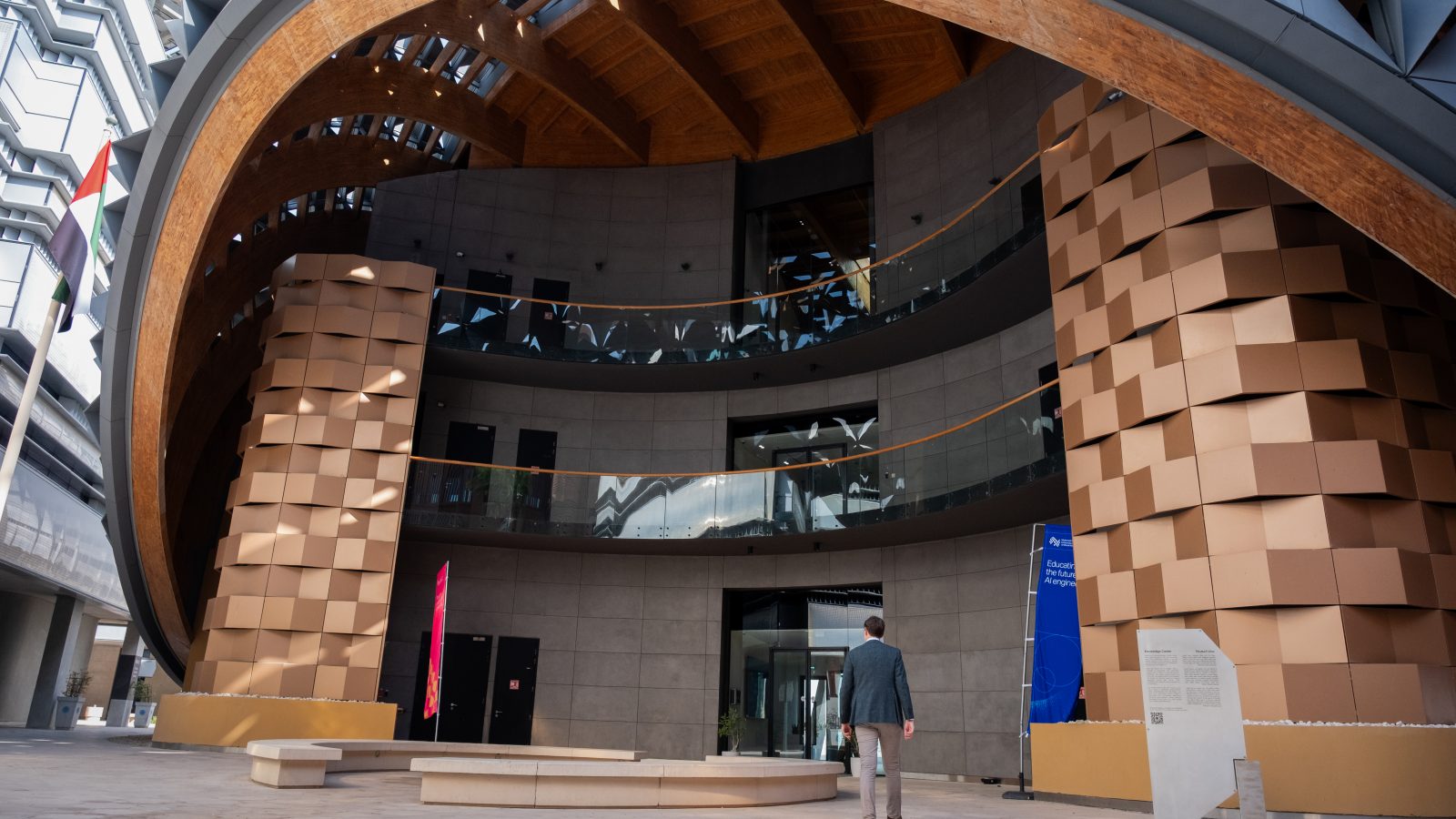In the fierce global war over workers skilled in artificial intelligence, the United Arab Emirates is luring researchers with a custom-built AI university that offers what many scientists dream of: abundant funding, vast computing power, and the full backing of the state.
In the six years since its founding, Abu Dhabi’s Mohamed bin Zayed University of Artificial Intelligence has hired more than 100 faculty from China, the U.S., Germany, and other countries. MBZUAI currently has over 700 students and alumni from 49 nations. The government-funded institute promises students full scholarships, and professors freedom from having to secure academic grants. It works closely with the UAE’s multibillion-dollar AI firm G42, and in May, it opened a satellite research facility in Silicon Valley dedicated to developing AI models.
Nowadays, there aren’t any universities competing in [AI model] game, other than us, really.”
There is a lot riding on the institute, which is central to the nation’s vision of becoming a global AI powerhouse. The government has bet billions on the tech, and hopes a steady talent pipeline will help diversify its oil-based economy. AI is expected to contribute 20% of the UAE’s non-oil GDP by 2031, according to a report by the Center for Strategic and International Studies, a think tank based in Washington, D.C.
MBZUAI should “create an AI district that would become the bedrock of the next level of advancement of the UAE’s and MENA’s [Middle East and North Africa] economy and global impact,” Eric Xing, the university’s president, said at an event in January.
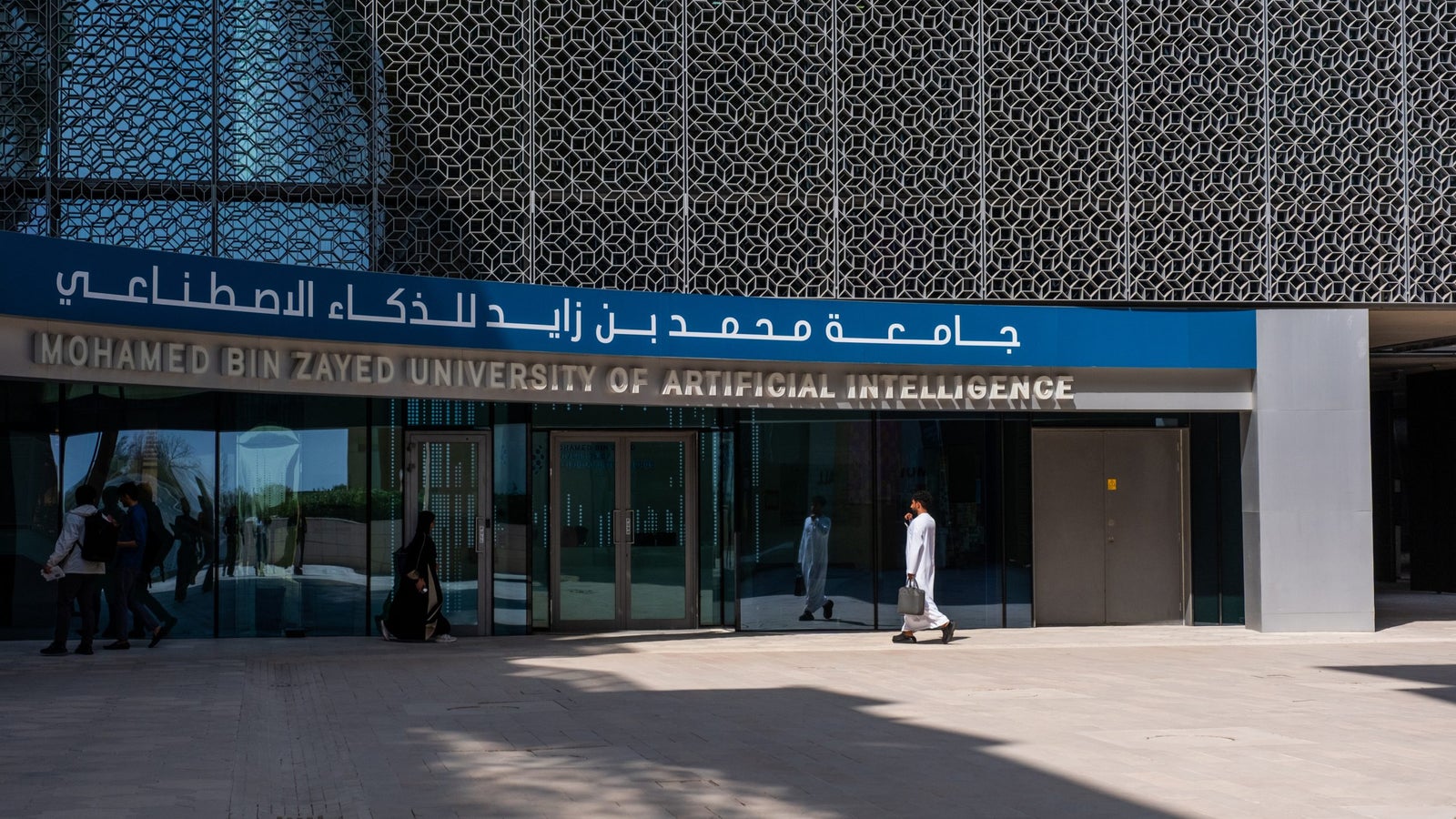
MBZUAI is central to the UAE’s strategy to attract talent.
Natalie Naccache for Rest of World
The university says its ambition to be the “Stanford of the Middle East” is already beginning to pay off. It is currently among the top 20 universities publishing on AI topics, according to CSRanking, a global computer-science ranking initiative.
Last month, it unveiled K2 Think, an open-source AI reasoning model, in collaboration with G42. Independent researchers who tested the model say it is “competent,” though not on par with OpenAI’s ChatGPT or DeepSeek.
Few universities are building foundation models, MBZUAI’s provost Tim Baldwin told Rest of World. Foundation models are general-purpose models trained on vast data. The research has recently become dominated by industry, he said.
“This disconnect between academic research, and industry research in AI is a very real thing,” he said. “Nowadays, there aren’t any universities competing in [AI model] game, other than us, really.”
The university has collaborated with G42 to release an Arabic large language model called Jais, a Kazakh LLM, and a Hindi LLM. Given the diversity of its students and faculty, non-English LLMs are developed in collaboration with students from the relevant cultures, Baldwin said.
“It isn’t, [for example], a Hindi-speaking Western culture model, which is a lot of what happens nowadays,” he said, referring to models like ChatGPT, which are trained primarily on English-language content and said to reflect Western cultural norms.
The university is located in the tech hub of Masdar City, on the outskirts of the capital. Its campus blends futuristic design with royal opulence: silver-colored classrooms, labs covered in solar panelled-facades, and terracotta dorms with intricately latticed balconies. Driverless pods transport visitors around the campus.
In early September, two weeks into the new academic year, the halls were quiet. For the first time, the university has enrolled 114 undergraduates in a fully funded three-year engineering and business degree.
From day one, the students will ideate startups, guided by professors who’ve themselves set up startups and sold them, Hao Li, head of the undergraduate program and a professor of computer vision, told Rest of World.
“We want to build an entire [AI] ecosystem,” Li said. “In other universities, AI is a specialization. We’re turning it upside down: AI is basically the foundation of everything.”
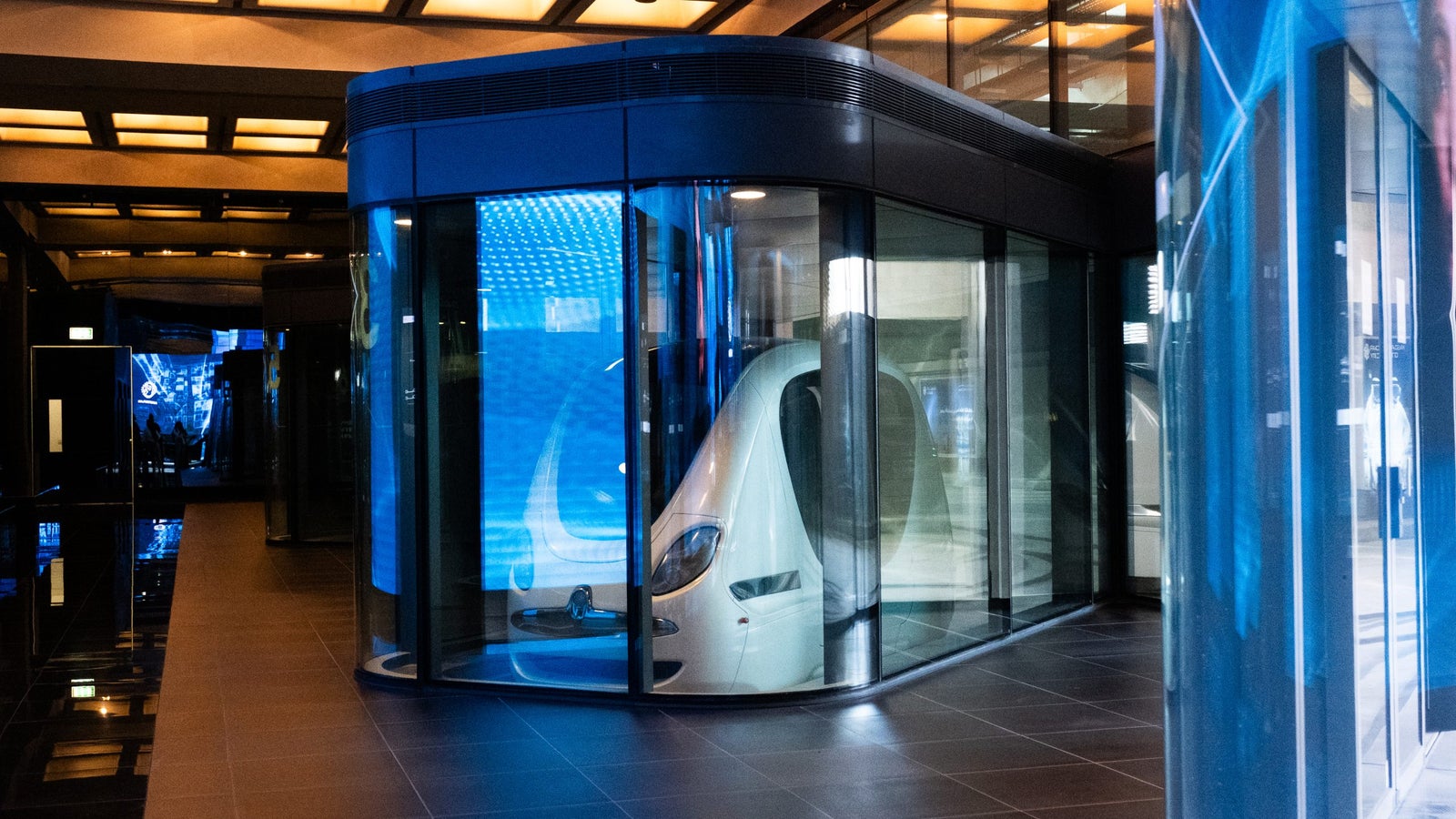
Driverless pods at MBZUAI transport visitors around campus.
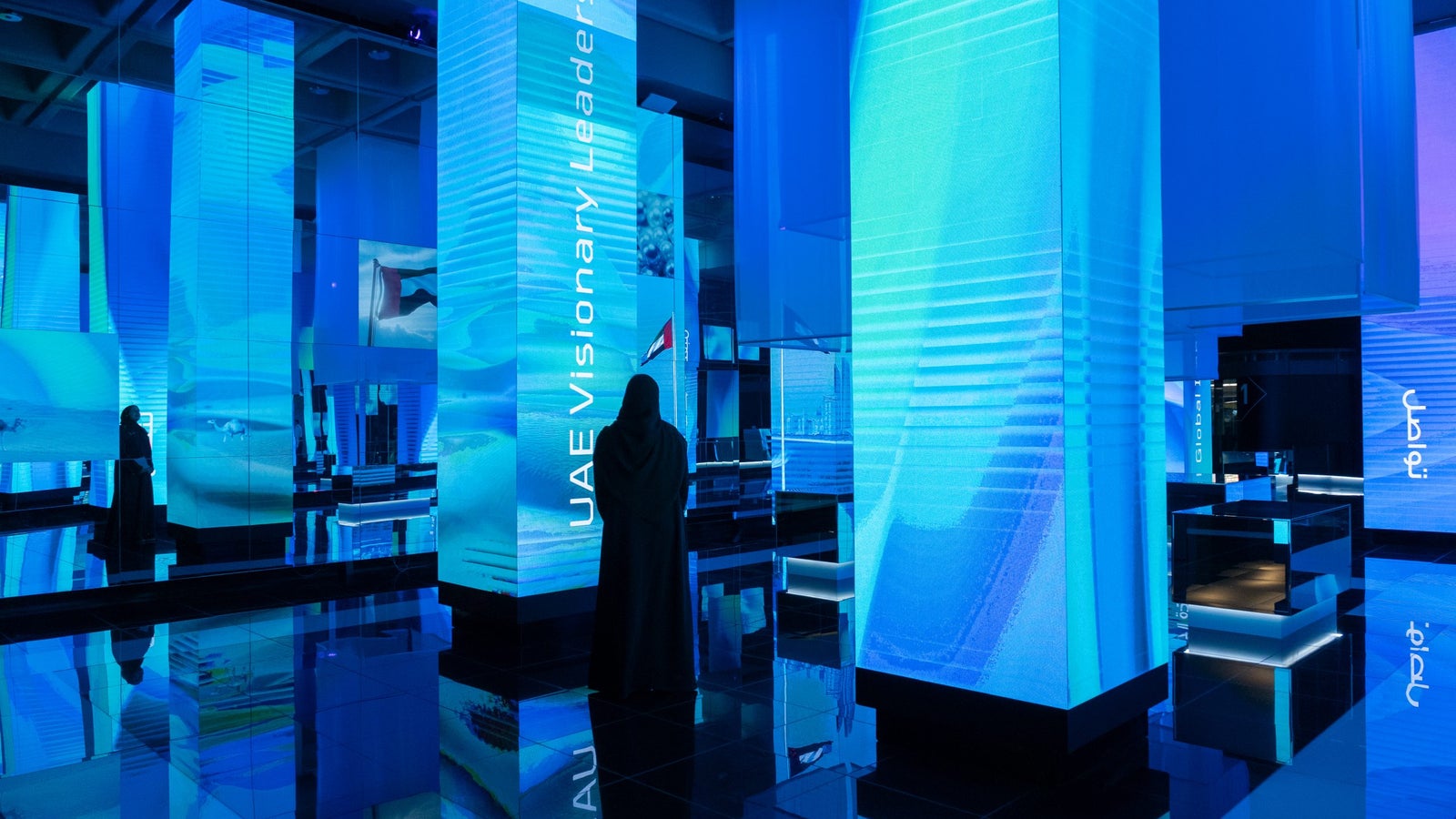
The university aims to build an ecosystem around startups.
Natalie Naccache for Rest of World
Since 2024, the alumni have founded 10 startups, Baldwin said. The university recruits the most ambitious students who “want to make the world a better place,” he said.
Graduate student Alexander Pretko enrolled at the university for a Ph.D. after visiting as an exchange student.
“I was able to see the tremendous resources they had available, as well as the quality of faculty they were hiring,” said Pretko, a former Wall Street banker and University of Colorado Boulder alum. It’s difficult to get similar backing in the U.S. where “funding is tenuous and opportunities are scarce,” he said.
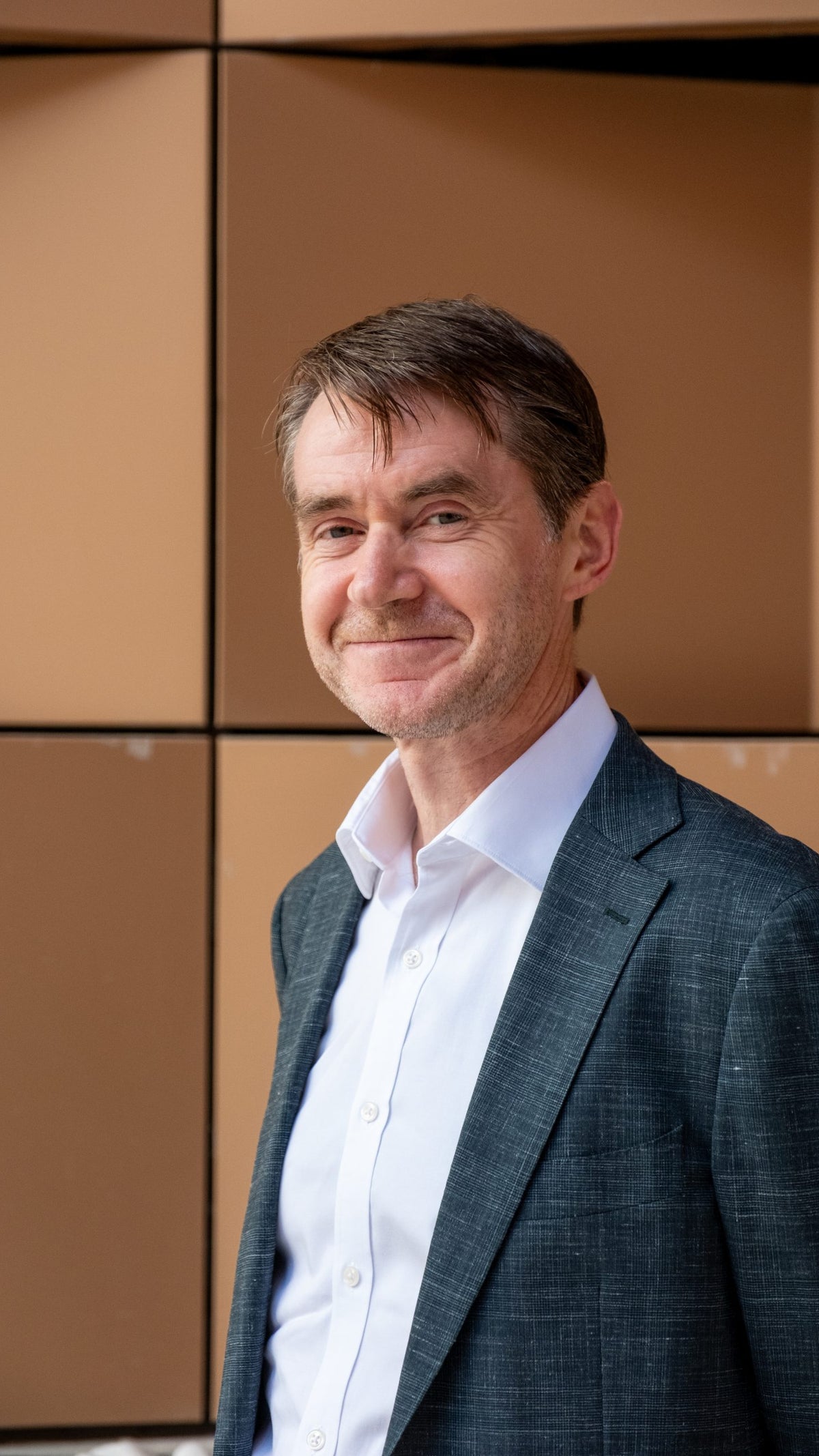
Tim Baldwin, provost, said students contribute to non-English LLM development.
Natalie Naccache for Rest of World
The university’s success is critical to the UAE’s AI mission, whose execution has two pillars: securing semiconductor chips to set up the “compute” or processing power needed for the top AI models, and hiring talent.
“Talent drives the next wave of AI, and it only matters when paired with compute,” Mohammed Soliman, senior fellow at the Middle East Institute, a Washington, D.C.-based think tank, told Rest of World.
State-backed G42 has reportedly secured thousands of the most advanced Nvidia chips. The UAE now ranks second to the U.S. in AI compute power, possessing over 188,000 AI chips and 6.4 gigawatts of power, according to a TRG Datacenters study.
In the future, the UAE can use American tech, powered by Emirati energy and infrastructure, to export compute power to Asia and Africa, Soliman said.
The growing anti-immigration sentiment in the West has strengthened the UAE’s hand, Soliman said.
“By offering safety, tax-free salaries, and long-term residency, it has turned its role as a migration magnet into soft power,” he said. “The real test will be whether the UAE can turn its magnetism into permanence, keeping talent that might otherwise see the Gulf as a stepping-stone [to the West].”
About 80% of MBZUAI’s graduates have stayed on in the country, Baldwin said.
So far, the university has benefited from attracting students due to few regional competitors, strong government backing, and interest from across the Middle East and Asia, according to Senthil Nathan, co-founder of Edu Alliance, who helped establish some of the UAE’s first universities.
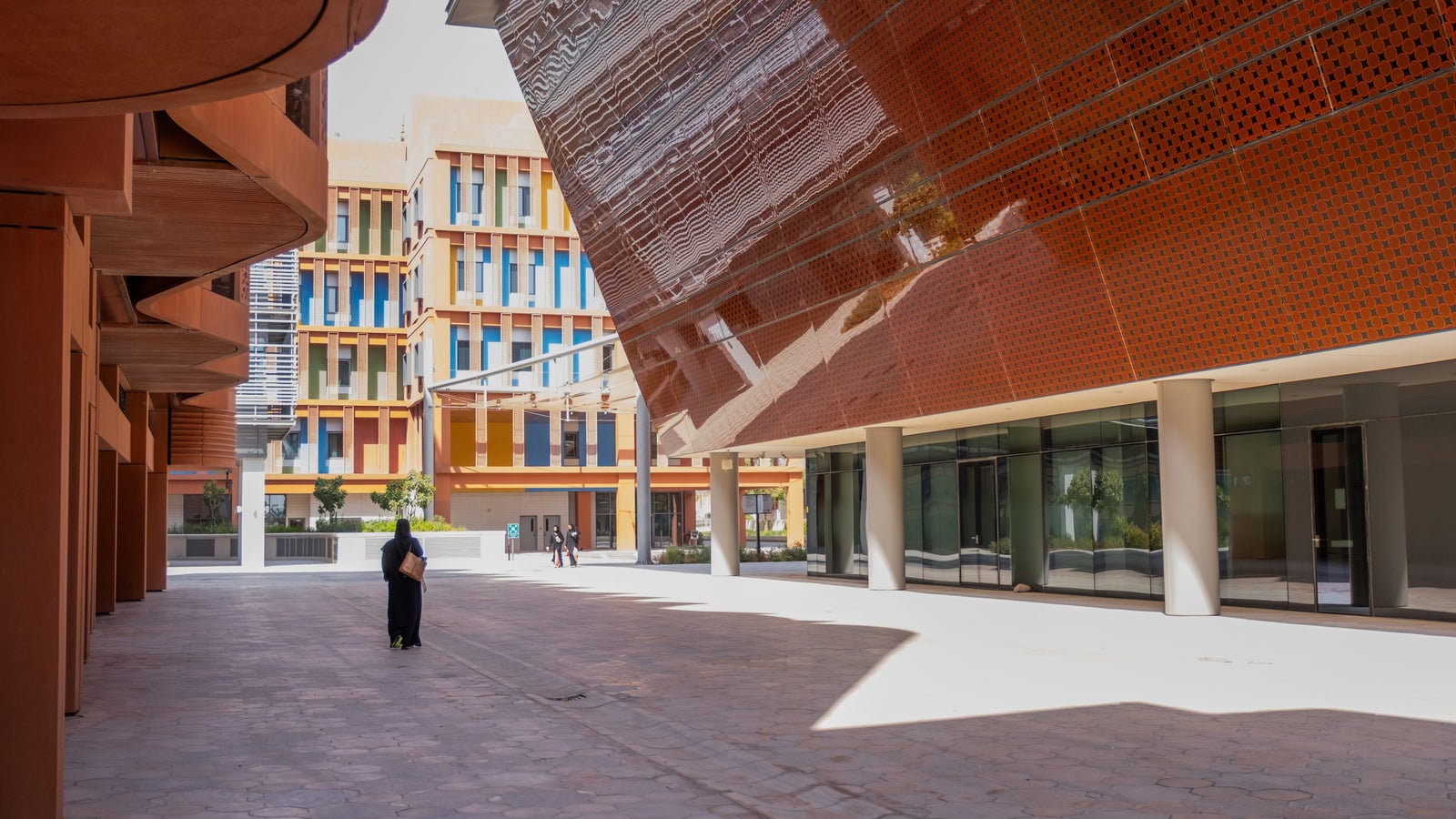
The university has enrolled 114 undergraduate students on full scholarships.
Natalie Naccache for Rest of World
The university’s management needs to focus on the long term, and secure a substantial endowment to shield it in case government priorities shift away from AI to the next “shiny new” technology, Nathan told Rest of World.
“Universities take longer to build up than physical infrastructures,” he said. “Academics move more like elephants than like cheetahs.”

